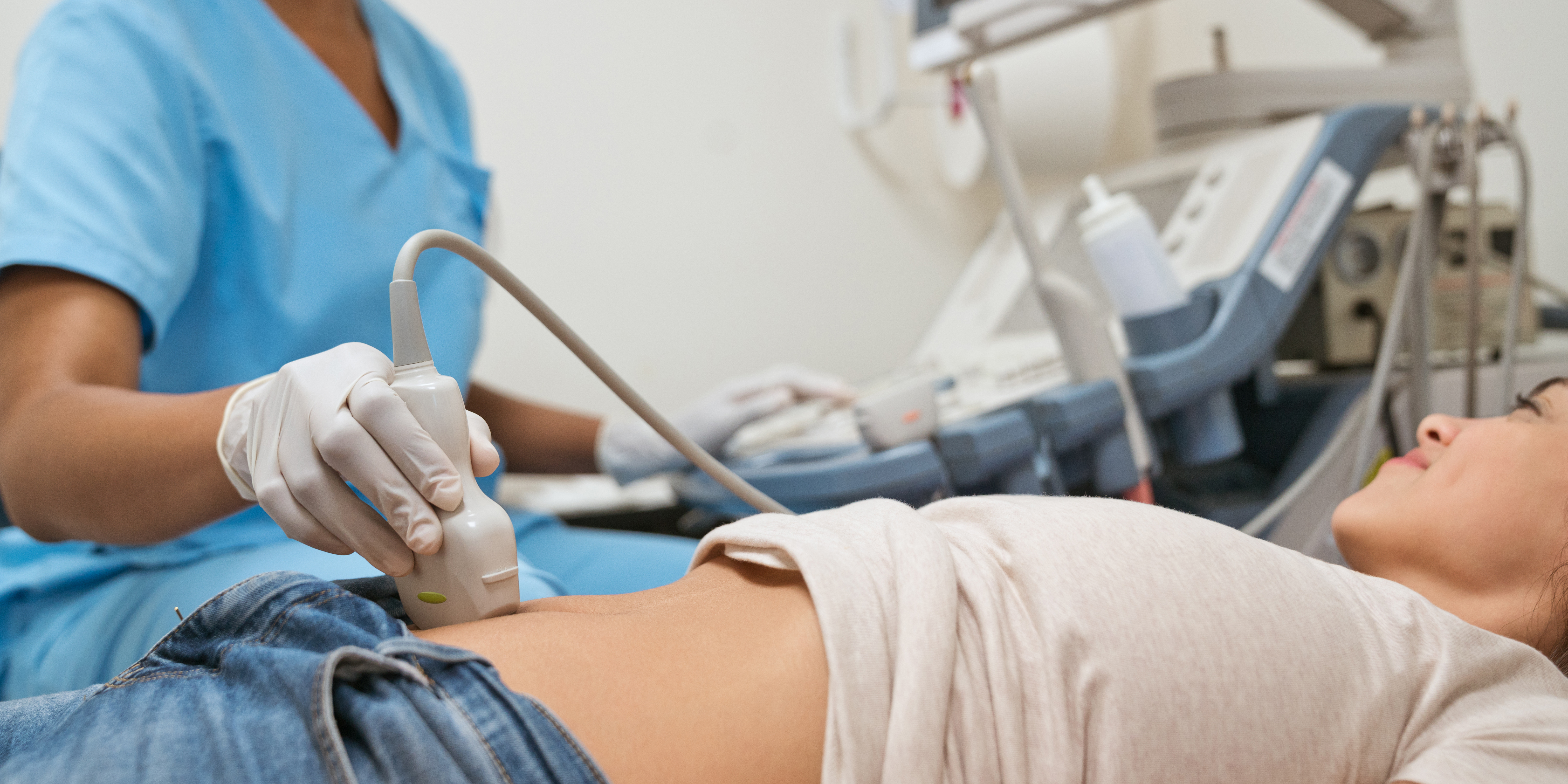
Healthy fetuses are being misdiagnosed as dead or malformed – and pregnant women are facing life-endangering situations – because high-street baby-scan clinics are offering ultrasound scans conducted by non-specialists, the Society of Radiographers says.
While anyone calling themselves a radiographer, a dietician, an art therapist or an occupational therapist must be qualified and registered with a regulatory body, anyone with an ultrasound machine can call themselves a sonographer.
This has resulted in a proliferation of high-street clinics offering pregnancy scans – with no guarantee that the scan will be conducted by a trained sonographer who knows how to read and interpret it. This puts unborn babies and their mothers in danger, the SoR says.
“One time, we had a lady referred in from a private clinic, who was eight or nine weeks pregnant,” says Elaine Brooks, a former hospital sonographer and Midlands regional officer for the SoR. “The sonographer at the private clinic said there was no heartbeat for the baby and that the baby was very, very malformed, and they sent her in for an induced miscarriage.
“The trust I was working in never accepts reports that come in from private clinics, so we started scanning the lady, who was in tears. On the scan there was clearly a beautiful nine-week pregnancy with a heartbeat. It was absolutely fine.
“Next to the pregnancy was a blood clot – what they’d done is measured the blood clot. But there was a fetus of normal appearance above it. If the hospital had given her the medication the private clinic had recommended, that baby would have miscarried.
“The mother was absolutely over the moon – but also very distraught, because she’d been knocking back the wine all weekend.”
Private clinics often offer a sexing scan ahead of the 20-week scan in hospital. “On occasion we see people come in for their 20-week scan having had a private scan a week or two before,” says Ms Brooks. “And then they come for their NHS scan and there’s quite a large abnormality that should have been picked up – something like spina bifida, polycystic kidneys or fluid-filled ventricles in the head – things that you wouldn’t expect to have developed in a week.”
On other occasions, the risk has been to the mother, rather than the fetus. “Ectopics are not an unusual occurrence: the clinic will say they can’t see the pregnancy,” says Ms Brooks. “But when the woman is scanned again in a hospital setting, it’s diagnosed as an ectopic – which is an obstetric emergency.” An undetected ectopic pregnancy is life-threatening to the mother.
Katie Thompson, SoR president and a hospital sonographer, says that the opposite also happens: she and her colleagues have had women urgently referred to hospital for an ectopic pregnancy that turns out to be a false alarm. “The ladies are understandably very anxious when they arrive at hospital,” she says. “But often it’s just very, very early in the pregnancy, and the private clinic hasn’t been able to identify the early-pregnancy sac.”
The most concerning case that Ms Thompson encountered also involved danger to the mother. The woman was coming into the second trimester of her pregnancy, and the sonographer at the private clinic had told her that she had funnelling of the cervix – which is when the cervix starts to open. The woman had been told that she should go home and have two weeks’ bed rest.
“This is really outdated advice,” says Ms Thompson. “Firstly, she should have been referred to hospital for an internal scan to check that there was funnelling. And secondly, we don’t recommend bed rest for anyone, especially for two weeks – you’ll end up with a clot in your leg, if not in your lung.
“Luckily, the lady went to her midwife, who gave her a follow-up scan, and she found no problem with the cervix. But if she’d followed the sonographer’s advice, it could have caused real problems.”
There are other risks to the mother, too. The Health and Care Professions Council has evidence of a sonographer who was struck off the professional register for radiographers for 10 years for sexually inappropriate misconduct. This meant that he could no longer practise in an NHS hospital – but he continued to work in private ultrasound clinics.
Gill Harrison, the SoR’s professional officer for ultrasound, says: “Patients often don’t know who’s conducting their scan. Many are appalled when they realise that someone with no qualifications, or who has been struck off a professional register, can still perform their ultrasound scan.”
There are also dangers to both mother and fetus from the high-frequency sounds emitted by an ultrasound machine. “If you scan for too long on a very early pregnancy, or use the wrong settings, it can initiate thermal effects that can generate heat in fetal tissues,” says Ms Brooks. “And it’s important that machines are regularly serviced – which in the past I’ve found some private clinics don’t do.”
The SoR is therefore calling for sonographer to become a protected title – which would mean that only those who are properly qualified and registered with the appropriate regulatory body would be allowed to call themselves a sonographer. Existing protected titles include dietician, podiatrist, art therapist and hearing-aid dispenser – and radiographer.
If sonographer was a protected title, it would mean that only someone who has completed approved postgraduate qualifications in sonography, or a practitioner who has taken an accredited undergraduate degree course in sonography – approved and recognised by the regulator – would be allowed to call themselves a sonographer. This would help expectant parents to understand who was carrying out their scan – and what qualifications they had.
“When people go for a scan or any kind of diagnostic test, they assume that the person they’re going to see is qualified to do it,” says Ms Thompson. “They don’t realise that anybody can buy a machine and call themselves a sonographer.
“With registration, no-one would be able to call themselves a sonographer unless they were on that register. And if there was a problem or a complaint, the patient would be able to refer them to their regulatory body.”
And if a complaint were made and the sonographer deemed unfit to practise, they would no longer be allowed to call themselves a sonographer. “Registration protects the patient,” she says.
